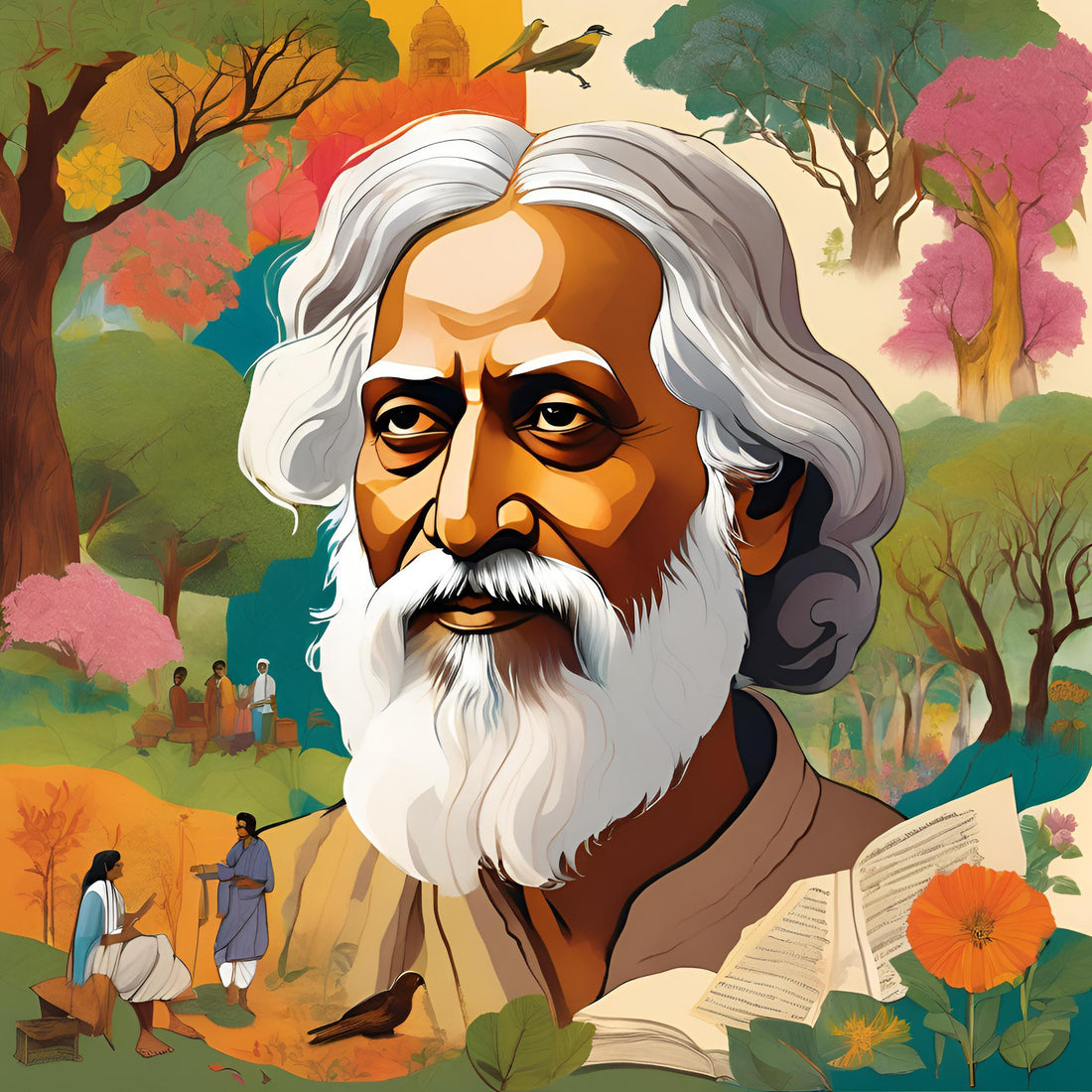
Rabindranath Tagore, Agartala & The Timeless Soul of Bamboo
Share
Each year, as we celebrate Rabindra Jayanti, we remember the immense legacy of Rabindranath Tagore—Nobel Laureate, poet, philosopher, and cultural icon. But beyond his global reputation lies a deep, lesser-known connection with Agartala, Tripura, and the soul of rural craftsmanship—bamboo.
Tagore and Tripura: A Royal Bond
Tagore shared a long-standing friendship with the royal family of Tripura, especially Maharaja Bir Chandra Manikya and later Maharaja Bir Bikram Kishore Manikya. These visionary rulers not only supported his literary and philosophical ventures but also played a crucial role in funding Visva-Bharati, Tagore’s dream university at Santiniketan. The cultural and intellectual exchanges between Bengal and Tripura flourished under this bond, making Agartala a significant node in Tagore’s journey.
Bamboo in Tagore’s Aesthetic and Rural Vision
While bamboo may not appear frequently as a literal element in his well-known verses, it was deeply woven into the fabric of Tagore’s rural philosophy. At Santiniketan, bamboo was not just a material—it was a metaphor for resilience, sustainability, and rural self-reliance. From bamboo flutes played by Bauls to bamboo fences and craftwork featured in his school buildings and village upliftment programs, the presence of bamboo symbolized a harmony with nature.
Tagore’s engagement with lokshilpa (folk craft) was revolutionary. He believed that the dignity of labor and indigenous craftsmanship were vital for India’s regeneration. Bamboo, abundant and versatile, became a core part of that narrative.
Celebrating Rabindra Jayanti Today
At Silpakarman, we pay homage to this vision by reviving and reimagining bamboo crafts that reflect both cultural heritage and contemporary relevance. From artisan-led baskets to modern bamboo lifestyle products, our work echoes Tagore’s belief in blending aesthetic beauty, nature, and livelihood.
This Rabindra Jayanti, let us reconnect with the roots that ground us—the poetic, the ecological, and the handcrafted. Let us celebrate the bard who saw the soul of the nation in the flute’s whisper and the artisan’s hands.
